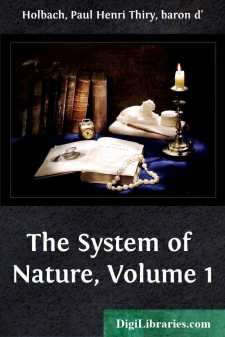Categories
- Antiques & Collectibles 13
- Architecture 36
- Art 48
- Bibles 22
- Biography & Autobiography 813
- Body, Mind & Spirit 142
- Business & Economics 28
- Children's Books 17
- Children's Fiction 14
- Computers 4
- Cooking 94
- Crafts & Hobbies 4
- Drama 346
- Education 46
- Family & Relationships 57
- Fiction 11829
- Games 19
- Gardening 17
- Health & Fitness 34
- History 1377
- House & Home 1
- Humor 147
- Juvenile Fiction 1873
- Juvenile Nonfiction 202
- Language Arts & Disciplines 88
- Law 16
- Literary Collections 686
- Literary Criticism 179
- Mathematics 13
- Medical 41
- Music 40
- Nature 179
- Non-Classifiable 1768
- Performing Arts 7
- Periodicals 1453
- Philosophy 64
- Photography 2
- Poetry 896
- Political Science 203
- Psychology 42
- Reference 154
- Religion 513
- Science 126
- Self-Help 84
- Social Science 81
- Sports & Recreation 34
- Study Aids 3
- Technology & Engineering 59
- Transportation 23
- Travel 463
- True Crime 29
Our website is made possible by displaying online advertisements to our visitors.
Please consider supporting us by disabling your ad blocker.
Superstition In All Ages (1732) Common Sense
Description:
Excerpt
I.—APOLOGUE.
There is a vast empire governed by a monarch, whose conduct does but confound the minds of his subjects. He desires to be known, loved, respected, and obeyed, but he never shows himself; everything tends to make uncertain the notions which we are able to form about him. The people subjected to his power have only such ideas of the character and the laws of their invisible sovereign as his ministers give them; these suit, however, because they themselves have no idea of their master, for his ways are impenetrable, and his views and his qualities are totally incomprehensible; moreover, his ministers disagree among themselves in regard to the orders which they pretend emanated from the sovereign whose organs they claim to be; they announce them diversely in each province of the empire; they discredit and treat each other as impostors and liars; the decrees and ordinances which they promulgate are obscure; they are enigmas, made not to be understood or divined by the subjects for whose instruction they were intended. The laws of the invisible monarch need interpreters, but those who explain them are always quarreling among themselves about the true way of understanding them; more than this, they do not agree among themselves; all which they relate of their hidden prince is but a tissue of contradictions, scarcely a single word that is not contradicted at once. He is called supremely good, nevertheless not a person but complains of his decrees. He is supposed to be infinitely wise, and in his administration everything seems contrary to reason and good sense. They boast of his justice, and the best of his subjects are generally the least favored. We are assured that he sees everything, yet his presence remedies nothing. It is said that he is the friend of order, and everything in his universe is in a state of confusion and disorder; all is created by him, yet events rarely happen according to his projects. He foresees everything, but his foresight prevents nothing. He is impatient if any offend him; at the same time he puts every one in the way of offending him. His knowledge is admired in the perfection of his works, but his works are full of imperfections, and of little permanence. He is continually occupied in creating and destroying, then repairing what he has done, never appearing to be satisfied with his work. In all his enterprises he seeks but his own glory, but he does not succeed in being glorified. He works but for the good of his subjects, and most of them lack the necessities of life. Those whom he seems to favor, are generally those who are the least satisfied with their fate; we see them all continually revolting against a master whose greatness they admire, whose wisdom they extol, whose goodness they worship, and whose justice they fear, revering orders which they never follow. This empire is the world; its monarch is God; His ministers are the priests; their subjects are men.
There is a science which has for its object only incomprehensible things....
















